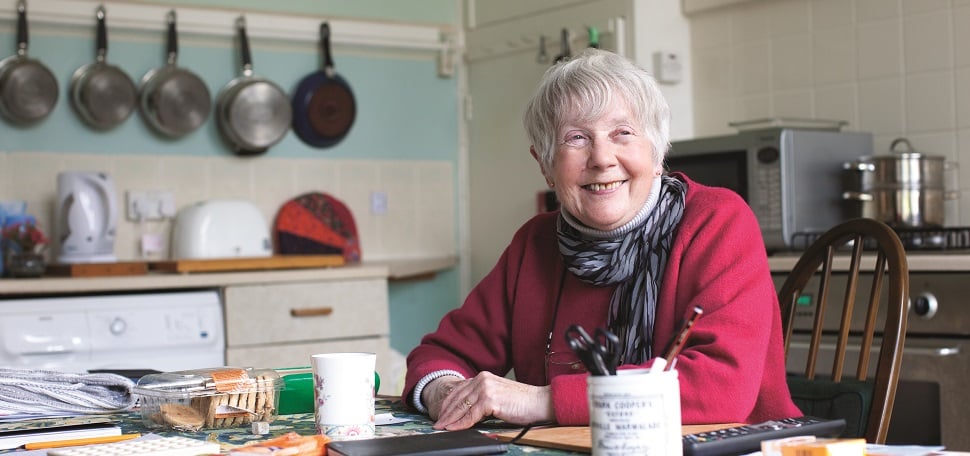Housing

All Londoners should live safely and securely in a property that suits their needs. This is an essential quality of an age-friendly city. Appropriate housing is a huge factor in determining the independence and quality of life for older citizens, by keeping them safe and warm and by helping them to access community and social services.
To see how we're campaigning to make the private rented sector more age-friendly click here!
Affordability
Cost of housing is a huge issue across the United Kingdom and nowhere more so than London, where house prices and rent costs outstrip the rest of the country. Affordability of housing has a massive bearing on an individual’s quality of life, restricting spending in key areas, most notably utilities and food. This in turn has a large knock-on effect on health and wellbeing, which can lead to increased pressure on the NHS.
High property costs affect older Londoners in particular, as they have less capacity for increasing their earnings in response to rent increases. Those on a pension or approaching retirement are particularly at risk of rental increases gradually eating away at finances. Older people are also more likely to look to remain in a “home for life” and find it especially difficult to move if their living costs become unaffordable. The cost and hassle of the moving process can often see older people stuck in houses that are too big for them or lack the adaptations needed to suit their current needs. Older people are also more likely to cut down on working hours than their younger counterparts, either for their own health reasons or to care for significant others. This again has a knock on effect on their ability to afford housing.
With an absence of genuinely affordable housing in London, the likely impact of not addressing the needs of older people who are struggling financially could be to force them out of areas where they want to live and may have lived for a very long time. In the worst-case scenarios, this could even lead to homelessness. This is especially concerning as the number of rough sleepers aged 56+ has increased by 105% between 2006 and 2015.
Design and Services
Housing design has a large impact on the ability of older people to live comfortably at home. The WHO’s guide to an Age-friendly City states that older people should live in accommodation that is “built from adequate materials and structurally sound; has even surfaces; has an elevator if it is multi-level accommodation; has appropriate bathroom and kitchen facilities; is large enough to move about in; has adequate storage space; has passages and doorways large enough to accommodate a wheelchair; and is appropriately equipped to meet the ambient environmental conditions.”
Furthermore, essential services such as gas, electricity, and water supply must be satisfactory and affordable for all citizens. This is especially important for older people who are often less able to increase their earnings in line with rises in utility bills.
Modifications and Maintenance
The opportunity to modify one’s house or flat affects the ability of older people to continue living comfortably at home. In addition, it is important to keep older Londoners aware of possible options for adapting their homes and the ways to go about this. However, retrofitting a home in London can often be complex and costly, suggesting a requirement to build specialist housing with the needs older people in mind.
The ability to have maintenance and repair worked performed on one’s property is also a key aspect of age-friendly living. It is important that such changes are made in a timely and proficient manner. Furthermore, older Londoners should be kept informed of the rights and responsibilities – both of themselves and their landlords – to repair work.
Options
A range of housing options that can accommodate changing needs is an important feature of an age-friendly city. The opportunity to downsize, to move to a care home, or simply to relocate to a quieter part of town should be available to all citizens as they age. Pivotal to this is the ability of older Londoners to know what housing options are available and to be able to locate such accommodation.
Click here to keep up-to-date with our Age-friendly London campaign!
